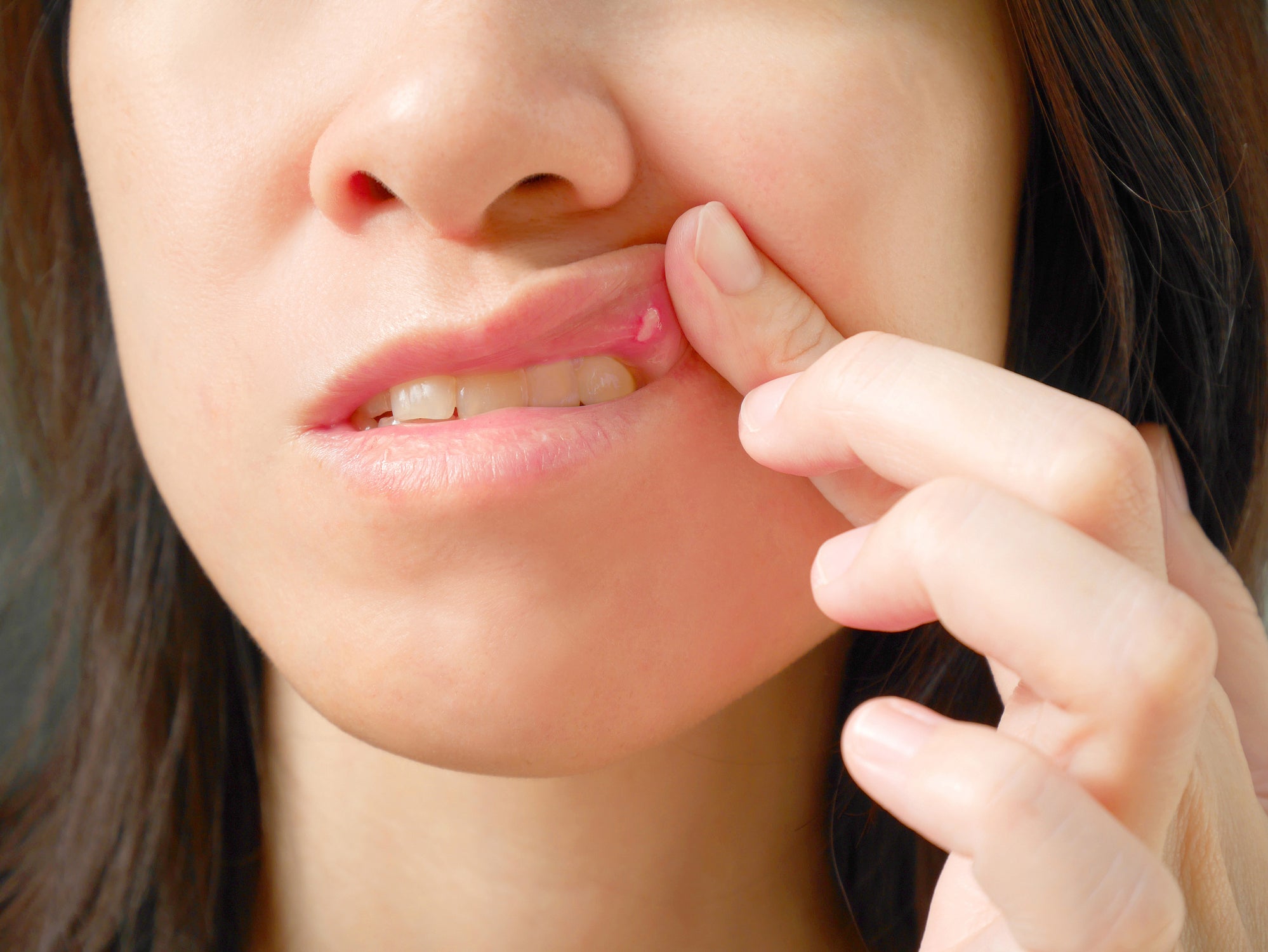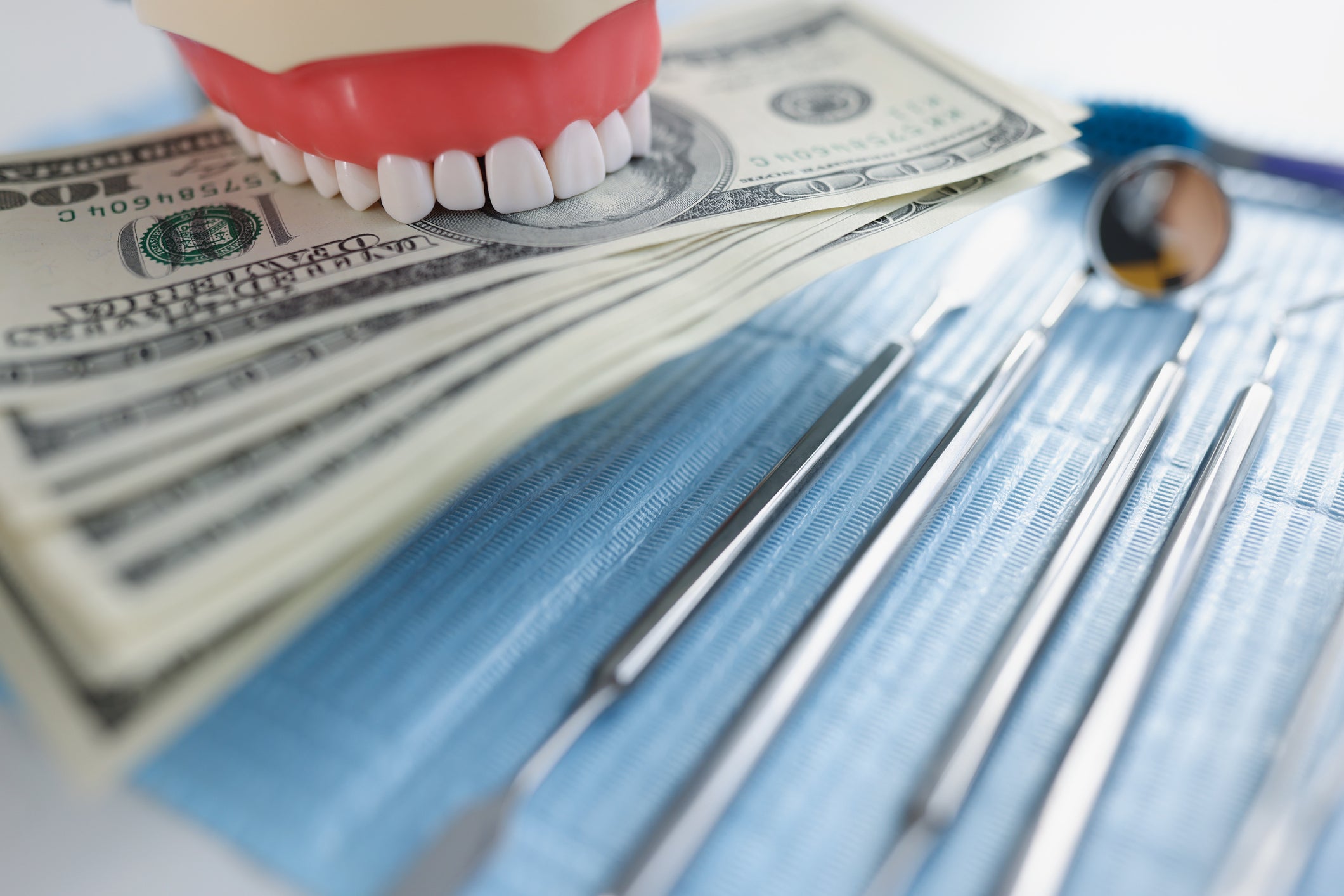-
The Relationship Between Oral Health and Acne

Have you ever woken up to a new pimple on your face and wondered where it could have possibly come from? Most of us can attribute our breakouts to stress, not getting enough sleep, or poor diet, but sometimes the cause of our acne is closer than we think. Studies have shown that poor oral hygiene can lead to breakouts on the face, specifically around the mouth and chin area. This is because the Propionibacterium acnes bacteria, which is known to cause acne, can live in the mouth and be transferred to the skin through activities such as biting your nails, touching your face, or even kissing somebody on the cheek.
To help prevent oral hygiene-related acne, be sure to brush and floss your teeth regularly, and if you bite your nails or have other habits that could transfer bacteria from your mouth to your face, try to break those habits. With a little care and effort, you can help keep your skin looking clear and healthy. Read on to learn more about the relationship between oral health and acne.
Oral Bacteria and Acne
Your mouth is home to millions of bacteria, many of which are beneficial. However, some types of bacteria can cause or contribute to acne. For example, Propionibacterium acnes is a type of bacteria that grows in the sebaceous glands of the skin. This bacteria feeds on sebum, the oily substance that these glands produce. When Propionibacterium acnes multiplies, it can block the pores and cause inflammation, leading to acne.
In addition, Staphylococcus epidermidis is a type of bacteria that is commonly found on the skin. This bacteria usually doesn’t cause any problems. However, if it gets into a cut or scrape, it can cause an infection. Infections can lead to inflammation, which can make acne worse.
Poor Oral Hygiene and Acne
Poor oral hygiene can also lead to inflammation, which can trigger or worsen acne. When you don’t brush or floss your teeth regularly, plaque builds up on your teeth and gums. Plaque is a sticky film that contains bacteria. If plaque isn’t removed, it hardens into tartar, which is even more difficult to remove. Tartar can irritate your gums and cause them to become inflamed. This inflammation can spread to other parts of your body and cause or worsen acne.
Tips to Prevent Oral Hygiene-Related Acne
Good oral hygiene is important for many reasons—including preventing or treating acne. Acne sufferers who are diligent about brushing and flossing their teeth are less likely to experience breakouts on their face, neck, and chest. In addition, regular use of an antibacterial mouthwash can help to kill the bacteria that can cause acne.
Visit your dentist regularly for professional cleanings and checkups. And if you are still struggling with acne, talk to your dermatologist about other treatment options that may be right for you.
Contact Park 56 Dental Today!
Talk to a dentist at Park 56 Dental about ways to improve your oral hygiene routine and see if that has an impact on your skin. Park 56 Dental in New York would be happy to help you get started on the right track!
-
Everything You Need to Know About Canker Sores

Canker sores are small ulcers that form inside the mouth. They can be very painful and make it difficult to eat or drink. Most canker sores heal on their own within 1-2 weeks. However, there are some things you can do to help relieve the pain and speed up the healing process. In this blog post, we will discuss everything you need to know about canker sores.
What Causes Canker Sores?
The exact cause of canker sores is unknown. However, there are several things that may contribute to their formation, including:
- Stress
- Hormonal changes (e.g., during puberty or menopause)
- Nutritional deficiencies (e.g., iron, vitamin B12, or folic acid)
- Trauma to the mouth (e.g., from toothpaste that is too abrasive or braces that rub against the inside of the mouth)
- Use of certain medications (e.g., blood thinners or drugs that contain sulfur)
- Infections (e.g., viral infections such as herpes simplex virus type 1 or bacterial infections such as strep throat)
How Are Canker Sores Treated?
Most canker sores heal on their own within 1-2 weeks. However, there are some things you can do to help relieve the pain and speed up the healing process. These include:
- Eating soft foods and avoiding spicy, acidic, or crunchy foods that might irritate the sore
- Rinsing your mouth with a saltwater solution
- Applying a topical numbing agent
- Taking over-the-counter pain relievers such as ibuprofen or acetaminophen
- Applying a topical steroid cream
- Undergoing laser treatment (this is usually done by a dentist or doctor)
How Can Canker Sores Be Prevented?
Canker sores are most common in teens and young adults, and can be caused by stress, hormonal changes, or a lack of certain nutrients. While canker sores are not contagious, they can be difficult to get rid of once they form. However, there are some things that can be done to prevent canker sores from forming in the first place:
- Reducing stress through relaxation techniques such as yoga or meditation
- Avoiding foods that you know trigger canker sores
- Practicing good oral hygiene by brushing your teeth twice a day and flossing daily
- Using a soft toothbrush and toothpaste without fluoride
- Wearing mouthguards when playing sports
If you experience frequent or severe canker sores, you should see a dentist or doctor to rule out any underlying medical conditions.
Contact Park 56 Dental Today for Canker Sores Treatment and Advice
If you’re dealing with canker sores, Park 56 Dental can help. We can provide you with tips on how to prevent canker sores from forming in the first place, and we can also provide you with treatment options if you do develop one. Don’t suffer in silence–contact Park 56 Dental today. We’ll be happy to help you get your mouth back to feeling healthy and comfortable again.
-
How to Avoid Wisdom Teeth Infections

Many people experience wisdom teeth infections at some point in their lives. While wisdom teeth are not necessary, they can cause problems if they do not come in properly. If your wisdom teeth are impacted or crowded, they may be more likely to develop an infection. Fortunately, there are ways to avoid wisdom teeth infection. In this blog post, we will discuss the symptoms, risks, causes, and treatment of wisdom teeth infections as well as how to avoid them.
What Are the Symptoms of a Wisdom Tooth Infection?
Wisdom tooth infections can cause several different symptoms. These symptoms may include pain, swelling, redness, and difficulty opening your mouth. You may also experience bad breath, a foul taste in your mouth, and a fever. If you experience any of these symptoms, you should see a doctor as soon as possible.
What Are the Risks of a Wisdom Tooth Infection?
Wisdom tooth infections can lead to several complications if they are not treated properly. These complications may include damage to the surrounding teeth, jawbone loss, and tissue death. If the infection spreads to other parts of the body, it can potentially be fatal. Therefore, it is very important to see a doctor if you think you may have an infection.
What Causes Wisdom Teeth Infection?
There are several things that can contribute to wisdom teeth infection. Impacted or crowded teeth are more likely to develop an infection because they are difficult to clean properly. If you have diabetes or a weakened immune system, you may also be more susceptible to developing an infection.
How to Treat an Infection
If you think you may have a wisdom tooth infection, it is important to see a doctor as soon as possible so that you can begin treatment. The most common treatment for wisdom tooth infection is antibiotic therapy. Antibiotics can help kill the bacteria that are causing the infection and reduce inflammation. Sometimes surgery is necessary to remove the infected tooth or drain the abscess that has formed.
How to Avoid an Infection
The best way to avoid wisdom tooth infection is to practice good oral hygiene and visit your dentist regularly. Brush and floss your teeth twice a day and try to avoid eating sugary or sticky foods that can get stuck in your teeth. If your wisdom teeth are impacted or crowded, your dentist may recommend having them removed before they have a chance to become infected.
When Should I See a Doctor?
If you think you may have a wisdom tooth infection, it is important that you see a doctor right away so that your condition does not worsen. Your doctor will likely perform a physical examination and take x-rays of your mouth to make a diagnosis. He or she will then determine what course of treatment is best for you based on the severity of your condition.
Contact Park 56 Dental Today!
Wisdom teeth infections can be painful and dangerous if left untreated. It is important to practice good oral hygiene and see your dentist regularly in order prevent them. Be sure see your doctor right away if any of the following symptoms: pain, swelling, redness, difficulty opening your mouth, bad breath, foul taste in mouth, or fever. These could be signs of an underlying problem requiring immediate medical attention.
If you are experiencing any of the symptoms mentioned in this blog post, please contact Park 56 Dental as soon as possible. We can help you get the treatment you need to avoid an infection and keep your smile healthy and beautiful.
-
Tips on How to Save Money on Your Oral Health

When it comes to saving money, few people think about their oral health care routine. However, there are several ways that you can save money on your oral health care without skimping on the quality of products that you receive. Here are a few tips to get you started.
Buy Products at Larger Supermarkets for Lower Prices
You can find good quality oral health products at your local supermarket for a fraction of the price you would pay at smaller stores. Look for brands that you trust and be sure to read the labels to make sure you are getting what you need.
Buy products from your dentist.
Sometimes it is worth it to buy directly from your dentist because they will be able to tell you exactly what you need so you don’t waste money on things you don’t. Dentists often have special deals or package pricing that can save you money in the long run.
Look at Your Local Pharmacy
Pharmacies stock oral health products and often have discounts and multibuys available. Many people don’t realize that pharmacies carry a wide variety of oral health products, and they are often very reasonably priced. Be sure to check the sale flyer before you shop so you know what deals are available.
Don’t Forget About Discount Stores
Discount shops such as dollar stores or discount department stores often have good deals on oral health products as well. Be sure to check the expiration date before you buy to make sure you are getting a good deal.
Practice Prevention
Preventive dentistry saves you time, money, and aggravation in the long run. Tips to avoid expensive dental treatments include brushing twice daily, flossing once daily, using mouthwash, and visiting your dentist regularly for cleanings and checkups.
Consider Your Diet to Safeguard Your Teeth
Eating sugary and acidic foods can damage your teeth over time and lead to cavities and other problems. Limiting these foods in your diet can help keep your teeth healthy and prevent costly dental treatment down the road.
Use Dental Insurance If You Have It
If you have dental insurance, be sure to use it! Most insurance plans will cover at least a portion of the cost of preventive care, such as teeth cleanings and X-rays. Regular preventive care can help you avoid more expensive dental problems down the road.
Look Into Dental Payment Plans When Needed
If you need dental work that is not covered by insurance, or if you don’t have insurance, ask your dentist about payment plans. Many dentists offer financing options that can make dental care more affordable.
Learn About the Child Dental Benefits Schedule
The Child Dental Benefits Schedule (CDBS) is a government-funded program that provides free or low-cost dental care for eligible children aged 2-17 years old. If you have kids, see if they qualify for the CDBS.
Why Choose Park 56 Dental in New York?
The team at Park 56 Dental is proud to offer our patients high quality, affordable dental care in New York in a comfortable and convenient setting. Our experienced staff is devoted to providing each patient with individualized attention and care. Contact us today to schedule an appointment! We look forward to meeting you soon!
RECENT POSTS
categories
- Uncategorized
- Cosmetic Dentistry
- Veneers
- Healthier Teeth
- Teeth Whitening
- Dental Health
- Video
- Dental Emergencies
- Invisalign
- Dental Implants
- Root Canal
- Sedation Dentistry
- Infographic
- Dental Crowns and Bridges
- Dental Anxiety
- Gum Disease
- COVID-19
- Bad Breath
- New York Dentist
- Cut out sugar
- General Dentistry
- Oral Health
- Oral Cancer
- Dry Mouth
- Gum Health
- Toothache
- Dental Sealants
- Cavities
